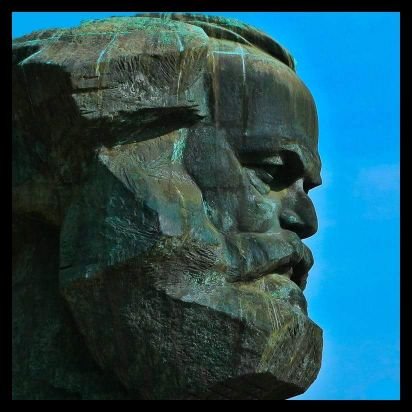«The Formation of Marx’s Critique of Political Economy: From the Studies of 1843 to the Grundrisse»: Marcello Musto
 Introduction
Introduction
Despite the predictions that consigned it to eternal oblivion, Marx’s work has returned to the historical stage in recent years and a number of his texts have reappeared on bookshop shelves in many parts of the world. The rediscovery of Marx is based on the explanatory capacity still present in his writings. Faced with a new and deep crisis of capitalism, many are again looking to an author who in the past was often wrongly associated with the Soviet Union, and who was too hastily dismissed after 1989.
This renewed political focus was preceded by a revival of historical studies of his work. After the waning of interest in the 1980s and the “conspiracy of silence” in the 1990s, new or republished editions of his work became available almost everywhere (except in Russia and Eastern Europe, where the disasters of “actually existing socialism” are still too recent for a Marx revival to be on the agenda), and these have produced important and innovative results in many of the fields in which they blossomed.1
Of particular significance for an exhaustive reinterpretation is the Marx-Engels-Gesamtausgabe (MEGA2), the critical historical edition of the complete works of Marx and Engels, which resumed serial publication in 1998.2 This brought into print Marx’s notebooks and all his preparatory manuscripts for the second and third volumes of Capital. The former include not only material from the books he read but also the reflections they stimulated in him; they reveal the workshop of his critical theory, the whole trajectory of his thought, the sources on which he drew in developing his own ideas. The publication of all the Capital manuscripts, and all the editorial revisions made by Engels,3 will make possible a reliable critical evaluation of Marx’s originals and the extent of Engels’s input into the published editions of Volumes Two and Three.
My present purpose is to reconstruct the stages of Marx’s critique of political economy in the light of the philological acquisitions of MEGA2, and hence to offer a more exhaustive account of the formation of Marx’s thought than has previously been offered. The great majority of researchers in this area have considered only certain periods in Marx’s development, often jumping straight from the [Economic and Philosophical Manuscripts of 1844]4 to the [Grundrisse] (1857–58) and from there to the first volume of Capital (1867), or, at best, examining only two other texts: The Poverty of Philosophy (1847) and [Theories of Surplus Value] (1862–63).
The study of priceless manuscripts, and of interesting interim results, has remained the preserve of a narrow circle of scholars capable of reading the German-language volumes of MEGA2. My aim here is to make these texts known more widely, and to revive debate on the genesis and unfinished character of Marx’s work.6 The study is in two parts. The first, corresponding to the present article, examines Marx’s research on political economy and some of his theoretical breakthroughs in this field, from the early studies of 1843 to the composition of the [Grundrisse] (1857–58) – the bulky preparatory manuscripts for the short work entitled A Contribution to the Critique of Political Economy (1859) that is generally regarded as the first draft of Capital. The second article, to be published in the near future, will look at the making of Capital through its various drafts, from the [Grundrisse] to the final manuscripts of 1881 before Marx’s death. In light of the new material of MEGA2, this sequel-essay will consider more carefully some of the most important Marxological debates of the twentieth century, such as those related to the alleged break between the early writings and Capital, or to the charge that Engels oversimplified Marx’s ideas. It will also try to show how a careful reading of the recent published texts might better illuminate the relevance of Marx’s oeuvre to the understanding and transformation of contemporary society.
The present article first seeks to reconstruct the studies in political economy that Marx conducted in Paris, Manchester and Brussels between 1843 and 1847, which culminated in the publication of The Poverty of Philosophy (§ II and III), and to consider Marx’s political and personal fortunes during the revolutions of 1848 and the first period of his subsequent exile in London (§ IV and V). During this time, he wrote on political economy for the two journals he founded and directed: from 1848 to 1849 the Neue Rheinische Zeitung: Organ der Demokratie, and in 1850 the Neue Rheinische Zeitung: Politischo konomische Revue. The conviction gradually formed in him that a new revolution could develop only in the wake of a world economic crisis. Section VI focuses on the 26 notebooks of excerpts that he compiled from 1850 to 1853, known as the [London Notebooks]. These bear the traces of his immersion in dozens of works of political economy, and they make it possible to reconstruct an important phase in Marx’s thought that few interpreters have investigated until now. Finally, after a discussion of the trial of Communists in 1853 (§ VII) – a significant event that Marx spent much energy combating – Sections VIII and IX review the development of his position in the articles he wrote for the New York Tribune on the possibility of an economic crisis in the 1850s. The outbreak of such a crisis eventually coincided with his initial work on the [Grundrisse], in which he dealt with the money-value relationship and the process of the production and circulation of capital, introduced the concept of surplus-value for the first time, and critically reworked the profound studies of political economy that had absorbed him in the preceding years. A table, printed as an appendix, sets out the chronological order of the notebooks of excerpts, the manuscripts and the works on political economy from the 1843–1858 period.
The Formation of Marx’s Critique of Political Economy: From the Studies of 1843 to the Grundrisse


























